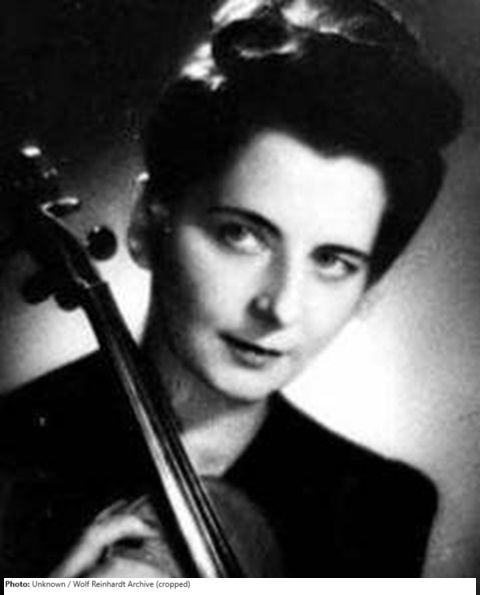Grażyna Bacewicz

Biographical information
| Roles | Competed in Olympic Games |
|---|---|
| Sex | Female |
| Full name | Grażyna•Bacewicz (-Biernacka) |
| Used name | Grażyna•Bacewicz |
| Born | 5 February 1909 in Łódź, Łódzkie (POL) |
| Died | 17 January 1969 (aged 59 years 11 months 12 days) in Warszawa (Warsaw), Mazowieckie (POL) |
| NOC |  Poland Poland |
Biography
Grażyna Bacewicz came from a musical family and started her own musical studies at the age of 10. She first studied philosophy and then composition, violin and piano in Warszawa. Fostered by composer and politician Ignacy Jan Paderewski, she was granted a scholarship to study composition in Paris, and first excelled as a violinist. During the German occupation, Bacewicz performed concerts in the underground. In 1945, she started teaching at the State Conservatory of Music in her hometown Łódź. Later, she concentrated on teaching and composing. In 1967, she was appointed full professor at the State Higher School of Music in Warszawa. During the 1950s and 1960s she was elected vice-president of the Polish Composers’ Union.
Bacewicz was considered a master of orchestration, and one of the most important representatives of contemporary Polish music. In addition, she also wrote novels and short stories. She composed one radio opera (Przygoda Krola Artura, 1959), three ballets, six symphonies and other orchestral works, several concertos, numerous chamber works, songs and a cantata combining neoclassical tendencies with modern techniques. Her work submitted for the 1948 art competitions, Kantata olimpijska, was a seven-minute long cantata for mixed choir and orchestra, based on Pindar’s 10th Olympic Ode, and translated by Jan Wernikowski. The work premiered in 1949.
Results
| Games | Discipline (Sport) / Event | NOC / Team | Pos | Medal | As | |
|---|---|---|---|---|---|---|
| 1948 Summer Olympics | Art Competitions |  POL POL |
Grażyna Bacewicz | |||
| Music, Compositions For Orchestra, Open (Olympic) |